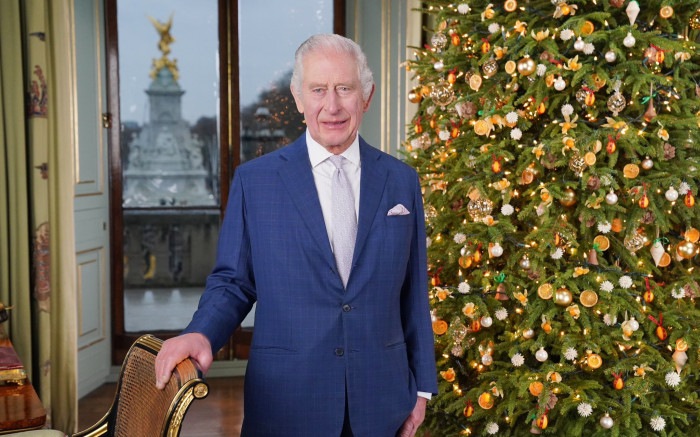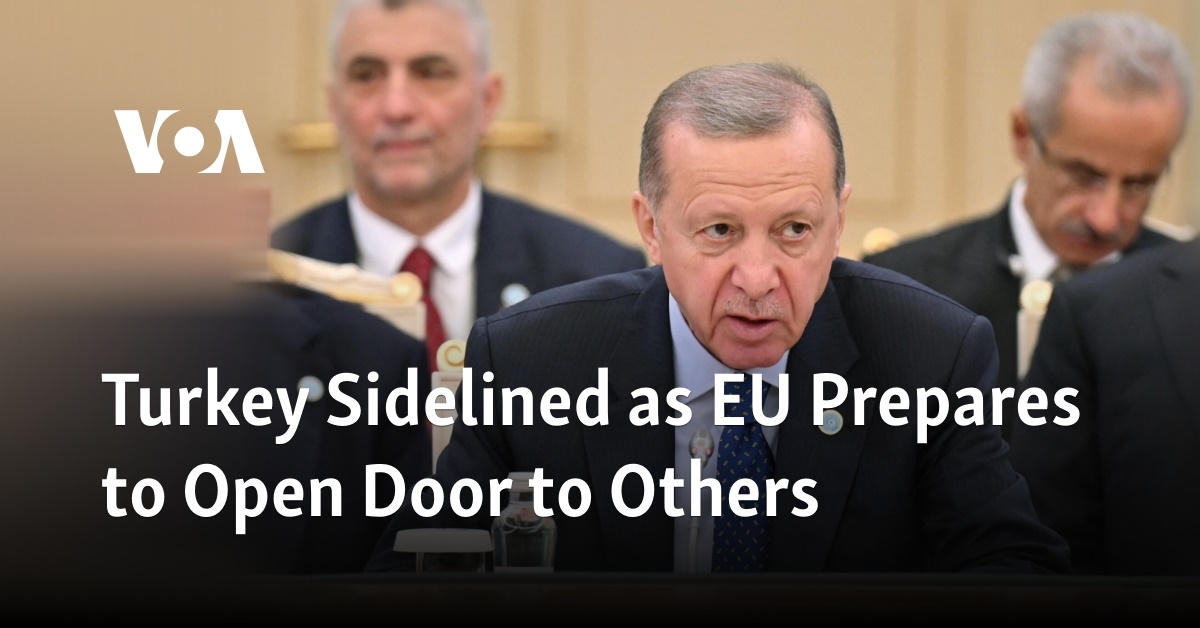
Russian President Vladimir Putin rejoiced early Monday in a victory that was never in doubt, as partial election results showed he easily secured a fifth term in office after facing only token challengers and the votes of the Harshly suppressed opposition.
At midday on Sunday, the last day of the election, Russians, who had little room for protest, crowded in front of the polling stations, apparently heeding a call from the opposition to express their displeasure with Putin. Still, the looming landslide made it clear that the Russian leader would accept nothing less than full control of the country’s political system if he extended his nearly quarter-century rule for another six years.
Putin welcomed the early results as a sign of “confidence” and “hope” in him – while critics saw them as another expression of the preordained nature of the election.
“Of course we still have a lot of work to do. But I want to make it clear to everyone: when we were consolidated, no one managed to intimidate us, suppress our will and our self-confidence. “They have failed in the past and they will fail in the future,” Putin said at a meeting with volunteers after polls closed.
British Foreign Secretary David Cameron wrote on out of.”
Any public criticism of Putin or his war in Ukraine was suppressed. Independent media were paralyzed. His fiercest political enemy, Alexei Navalny, died in an Arctic prison last month, and other critics are either in prison or in exile.
In addition to the fact that voters had virtually no choice, independent monitoring of the elections was extremely limited. According to Russia’s Central Election Commission, Putin had about 87% of the vote, with about 90% of precincts counted.
In this tightly controlled environment, Navalny’s aides urged those dissatisfied with Putin or the war in Ukraine to go to the polls at midday on Sunday – and the queues outside a number of polling stations both within Russia and outside its embassies around the world seemed to be getting bigger and bigger this time.
Among those who answered the call was Yulia Navalnaya, Navalny’s widow, who stood in a long line in Berlin as some in the crowd applauded and chanted her name.
She spent more than five hours in line and told reporters after voting that she had written her late husband’s name on the ballot.
When asked if she had a message for Putin, Navalnaya replied: “Please stop demanding messages from me or from anyone for Mr. Putin.” There could be no negotiations or anything with Mr. Putin because he is a Murderer, he’s a gangster.”
But Putin denied the effectiveness of the apparent protest.
“There were calls to come and vote at lunchtime. And this should be an expression of opposition. Well, if there were calls to vote, then… I applaud that,” he said at a news conference after polls closed.
Unusually, Putin mentioned Navalny by name at the press conference for the first time in years. And he said he was informed of the idea of releasing the opposition leader from prison just days before his death. Putin said he agreed with the idea on the condition that Navalny did not return to Russia.
Some Russians waiting to vote in Moscow and St. Petersburg told the Associated Press that they took part in the protest. However, it could not be confirmed whether everyone in line did so.
A woman in Moscow who said her name was Julia told the AP that she was voting for the first time.
“Even if my vote doesn’t change anything, my conscience will be clear … for the future I want to see for our country,” she said. Like others, she did not give her full name for security reasons.
Another Moscow voter, who also identified himself only by his first name, Vadim, said he hoped for change but added: “Unfortunately, that is unlikely.”
Meanwhile, Navalny’s supporters flocked to his grave in Moscow, some bringing ballot papers with his name written on them.
Meduza, Russia’s largest independent news portal, published photos of ballot papers it had received from its readers with the words “Killer” on one, “Thief” on another and “The Hague Awaits You” on another. The latter refers to an arrest warrant issued by the International Criminal Court against Putin, which accuses him of personal responsibility for the abduction of children from Ukraine.
Some people told the AP that they would have happily voted for Putin — unsurprising in a country where independent media has been hampered, state television broadcasts praise for the Russian leader and expressing a different opinion is risky .
Dmitri Sergienko, who cast his vote in Moscow, said: “I am happy with everything and I want everything to continue as it is now.”
Voting took place over three days at polling stations across the vast country, in illegally annexed regions of Ukraine and online. In Sunday’s vote, Russian authorities said Ukraine had launched a massive new wave of attacks on Russia that killed two people – underscoring the challenges facing the Kremlin.
Despite strict controls, several dozen cases of vandalism at polling stations were reported during the election period.
Several people were arrested, including in Moscow and St. Petersburg, after attempting to set fires or detonate explosives at polling stations, while others were detained for throwing green antiseptic or ink into ballot boxes.
Stanislav Andreychuk, co-chair of the Golos independent election watchdog, said law enforcement pressure on voters had reached unprecedented levels.
Russians, he said in a social media post, were searched entering polling stations, there were attempts to check completed ballots before they were cast, and a report said police demanded a ballot box be opened, to take a ballot paper.
“It is the first time in my life that I have seen such absurdities,” Andreychuk wrote on the messaging app Telegram, adding that he started monitoring elections in Russia 20 years ago.
The OVD-Info group, which monitors political arrests, said 80 people were arrested in 20 cities across Russia on Sunday.
That left little room for people to express their displeasure, but Ivan Zhdanov, the head of Navalny’s anti-corruption foundation, said the opposition’s protest call had been successful.
Outside Russia, huge queues also formed around midday outside diplomatic missions in London, Berlin, Paris, Milan, Belgrade and other cities with large Russian communities, many of whom left their homes after Putin’s invasion of Ukraine.
Demonstrators in Berlin displayed a figure of Putin bathing in bloodbath, with the Ukrainian flag at his side, next to shredded ballot papers in ballot boxes.
Russian state television and officials said the broadcasts showed high participation abroad.
In Tallinn, where hundreds stood in a line on the Estonian capital’s cobblestone streets leading to the Russian embassy, 23-year-old Tatiana said she had come to take part in the protest.
“If we have the opportunity to protest, I think it’s important to take advantage of every opportunity,” she said, giving only her first name.
Boris Nadezhdin, a liberal politician who tried to run in the election on an anti-war platform but was barred by election officials, expressed hope that many Russians would vote against Putin.
“I believe that today the Russian people have a chance to show their true attitude to what is happening by voting not for Putin, but for some other candidates or in another way, and that’s exactly what I did,” he said after voting in Dolgoprudny, a town just outside Moscow.
___
Follow AP’s coverage of the Russian election: https://apnews.com/hub/russia-election






Recent Comments